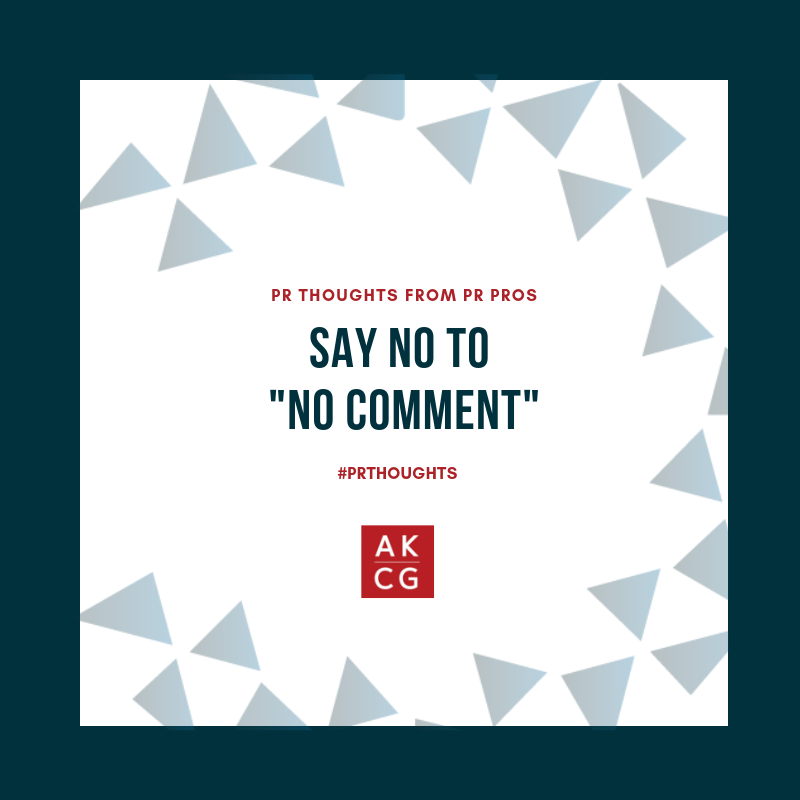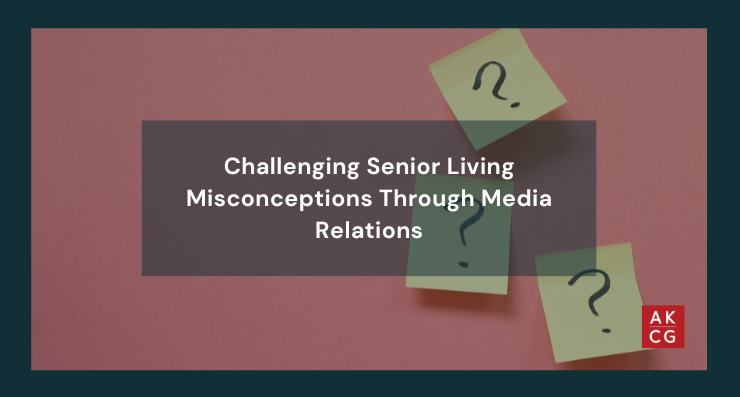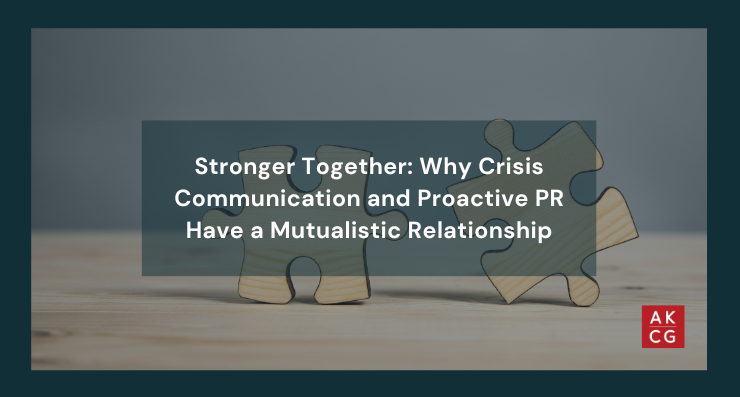“No comment.” No other two-word phrase can have the same impact on your organization’s reputation as this powerful duo when your organization is facing a crisis. Perhaps we’ve all seen too many legal dramas on TV, but when we hear someone in a position of power utter “no comment,” all we hear is “I’m guilty.”
Simply put, it is never a good idea to respond to a media inquiry with “no comment.”
Ever.
Just don’t do it.
As a public relations firm, we often help our clients through situations where using that little phrase may seem like a practical choice. Perhaps we’re managing an internal matter that is considered private, or perhaps we’re managing a highly sensitive public situation with complicated legal implications. Regardless of the scope of the issue, there is always … always … something better we can provide to an inquiring reporter than a “no comment,” even when we have nothing to say.
When crafting a response in crisis communication, we first must accept the premise that providing a statement of some substance is better than using that notorious phrase. Even if we don’t have answers to the reporter’s questions – or if we don’t want to answer the reporter’s questions – we should feel obligated to provide a usable response geared to retaining credibility and respect. If we don’t respond to a reporter’s request, one of two things will likely happen. You might incite an ambush interview (surprise, the reporter is at the front door with the camera rolling) or someone else will fill that reporter’s need. Do you want an unauthorized spokesperson or even a competitor speaking for us or commenting on our situation? I don’t either.
Now that we agree a response is necessary, we need to determine what we can say … even if we have nothing to say. Here are four themes you can use to quickly form a better option than “no comment.”
Empathy – You can express some form of emotion, such as empathy. Empathy isn’t the same as saying sorry or admitting guilt. Empathy acknowledges human impact and your commitment to addressing the issue – regardless of the issue – and signals how seriously you take this situation.
Values – You can speak to your values. A core values statement will resonate with your audiences when they read the article or see the news segment. This approach conveys your focus on what matters most — your guide posts as you confront the challenge.
Policies – You can lean on your policies and procedures. While you may not want to provide details about the matter at hand, you should be able to outline the policies, procedures or protocols that govern your decision making. Rely on policies to ground you in a seemingly chaotic situation; display control and confidence.
Updates – You can promise to keep people informed. Mind you, this doesn’t mean you’ll issue a press release as soon as you learn more. But you do have a duty to keep your key audiences – those closest to you, such as employees, customers, referral sources or neighbors – updated when information becomes available.
One caveat to these options: They may not directly answer a reporter’s questions. But that’s okay. Your job is not to answer every question directly and fully; effective crisis communication is about managing the reputational challenge threatening your organization.
Start by resisting the urge to be dismissive, minimalistic and evasive, and avoid the “no comment” reputational pitfall.




